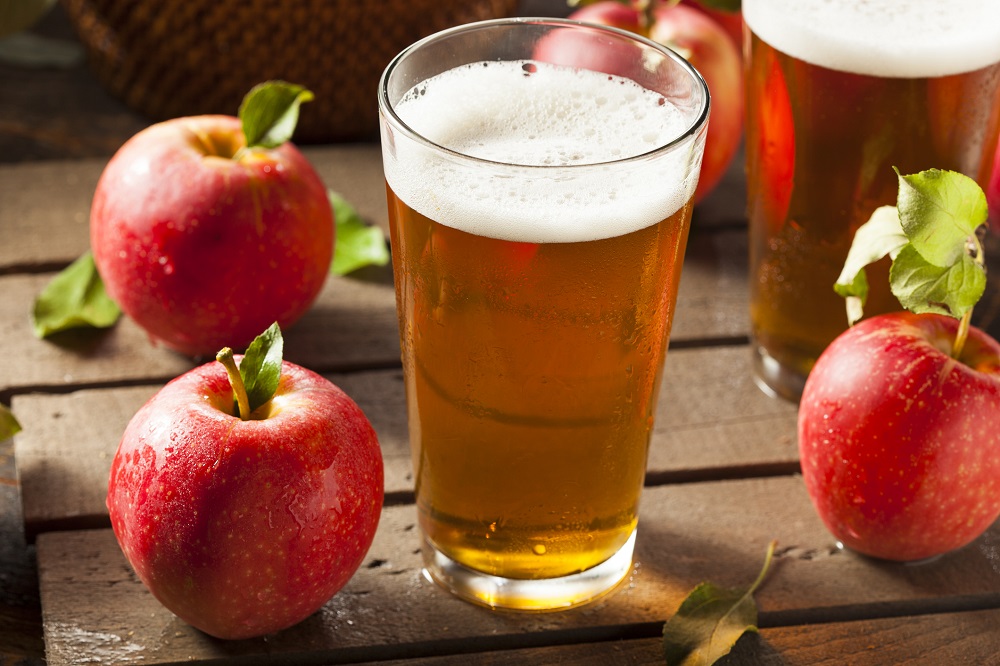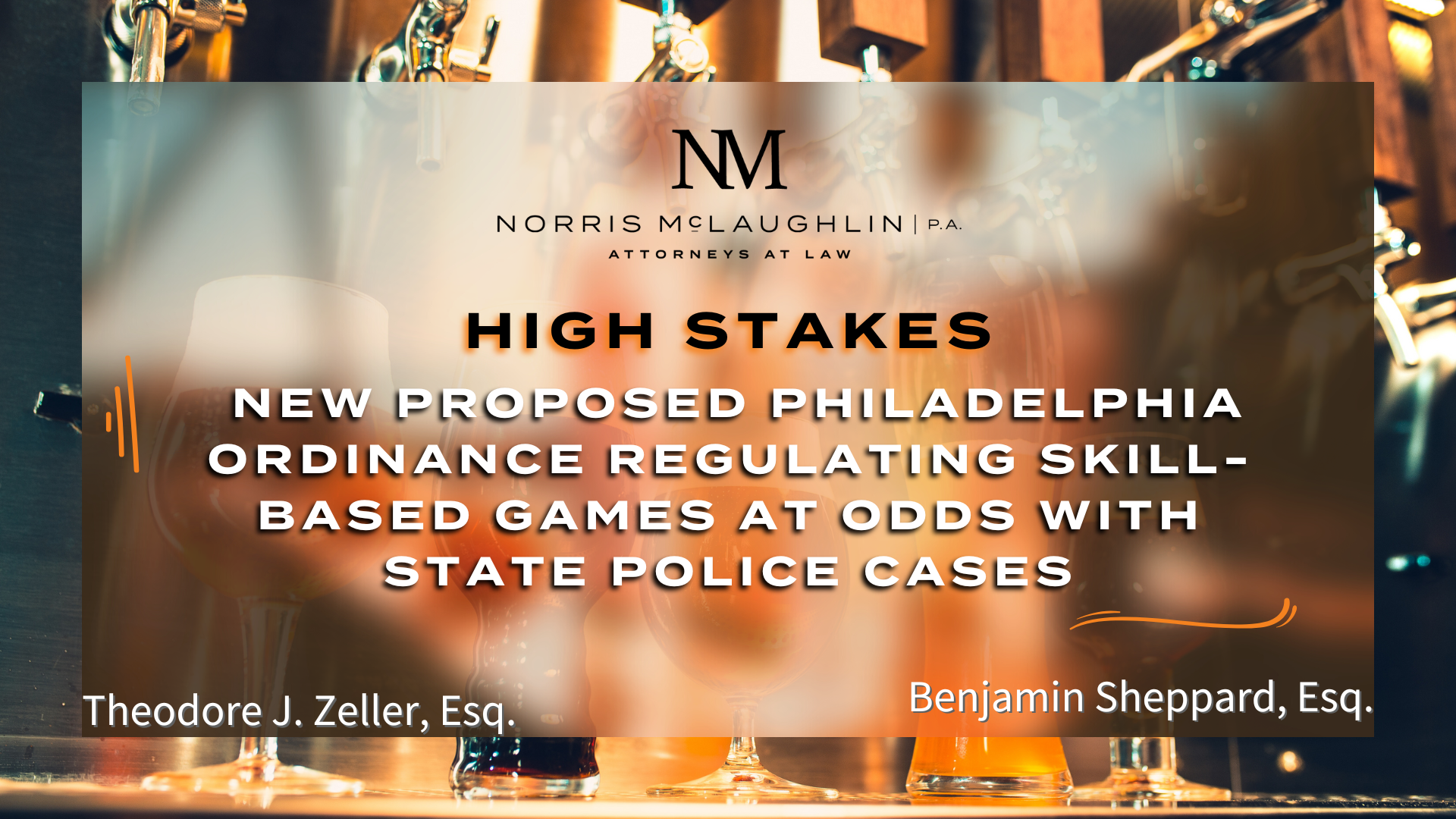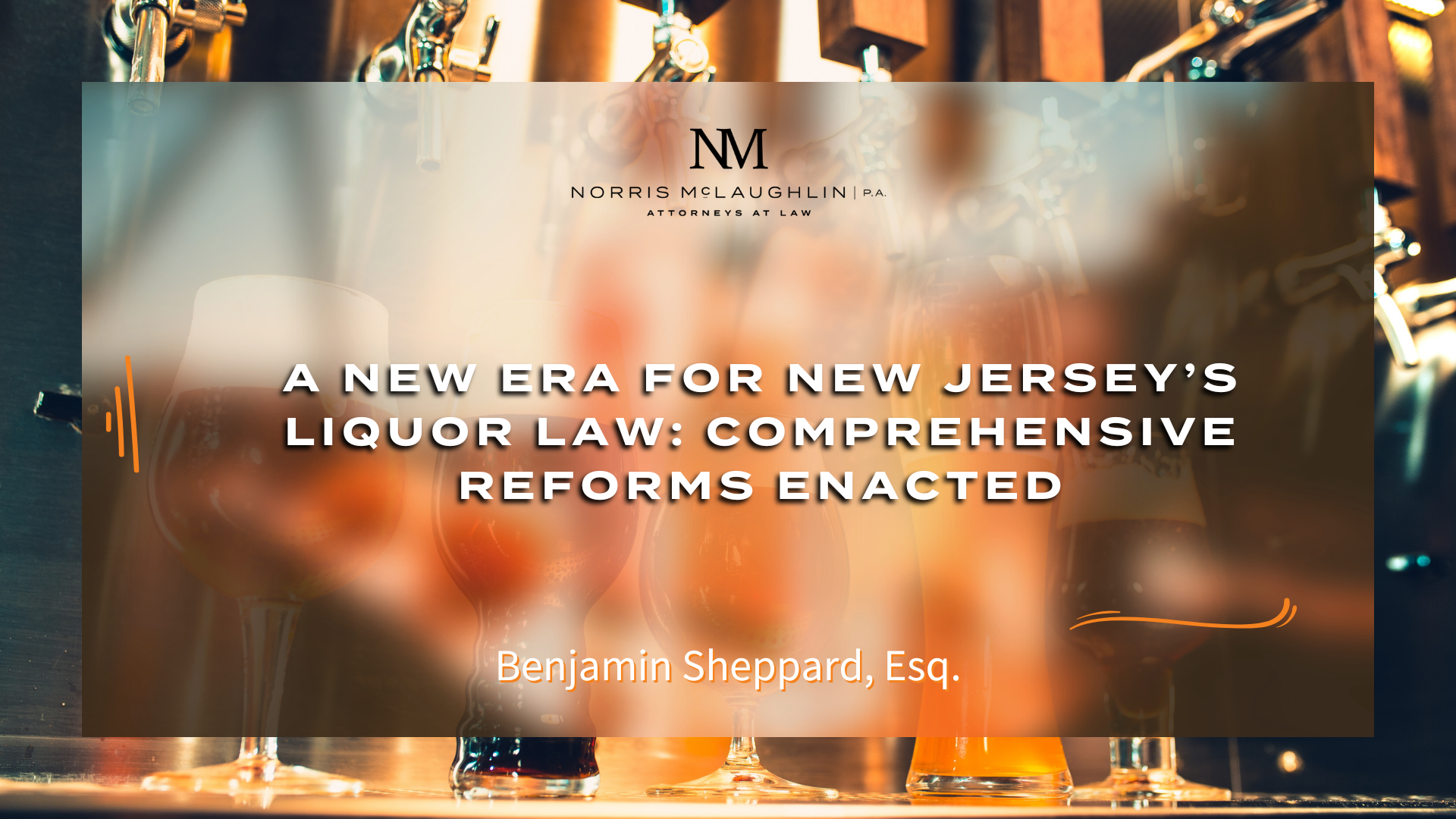For information regarding national and state liquor law matters or general manufacturing and distribution advice, please contact our Liquor Law, Licensing, Manufacturing, and Distribution Practice Group: Liquor Law Department Chair Theodore J. Zeller III, Esquire (tzeller@norris-law.com); David C. Berger, Esquire (dberger@norris-law.com) for Pennsylvania and New Jersey retail and manufacturing licensing; or contact our offices at 610-391-1800.
If You Were Thinking About Brewing Hard Cider This Fall at Your New Jersey Brewery, Think Again

Can a brewery make cider? The federal government (TTB) says “yes.” In Pennsylvania, “no problem.” New York says “go for it.” How about New Jersey? The answer is “no.”
Introduction
Although the TTB allows a brewery to produce cider in addition to beer under an “alternating” scheme, the New Jersey Division of Alcoholic Beverage Control (“ABC”) will not permit a brewer to have both a brewery and cidery license under one roof.
The ABC points to its inability to enforce the differing laws between a brewery and cidery, including the tour requirement for breweries, as a basis to prohibit breweries from also making cider.
Explanation
In further support of its prohibition on the manufacturing of beer and cider in one facility, the ABC considers N.J.S.A. 33:1-26, which provides in part that “a separate license is required for each specific place of business and the operation and effect of every license is confined to the licensed premises.” The foregoing provision is meant to make sure that a liquor license is not used beyond its four corners (e.g. the restaurant at one end of the shopping center can’t let its neighbor use the license – the neighbor needs its own). The statute does not say, or suggest, that a specific place of business cannot hold two licenses. Brewpubs hold two licenses.
The ABC also relies on a New Jersey Appellate Division case to support their restriction on beer and cider from being made at the same location. That case concerned a plenary distribution license (liquor store license) – a very different, retail, license. And it concerned whether or not the liquor store could sell alcohol in four different parts of its building that were separate from each other. The Appellate Division said that they could. Meanwhile, that is a case involving one license, with four sales areas, under one roof. The situation contemplated (brewing beer and making cider in one location) involves two licenses under one roof, which is not addressed or contemplated in the Appellate Division decision.
What makes this edict more difficult to swallow is that cider is treated as a “malt alcoholic beverage” when it comes to New Jersey’s beer franchise act, but it can’t be made in a brewery, which is permitted to brew “any malt alcoholic beverage.” When it comes to protecting wholesalers, cider is a malt alcoholic beverage, but when a brewery wants to offer a gluten-free option, they are out of luck.
Conclusion
If you looked at our prior post, you will see that New Jersey’s legislation (or lack thereof) with regard to alcohol can make New Jersey a difficult place to operate. The above is yet another example of the hurdles New Jersey craft brewers face. We would like to see our Legislature make the alcohol industry more user-friendly in New Jersey, and if not, it may be time for our brewers to challenge inconsistent and oppressive liquor laws.



